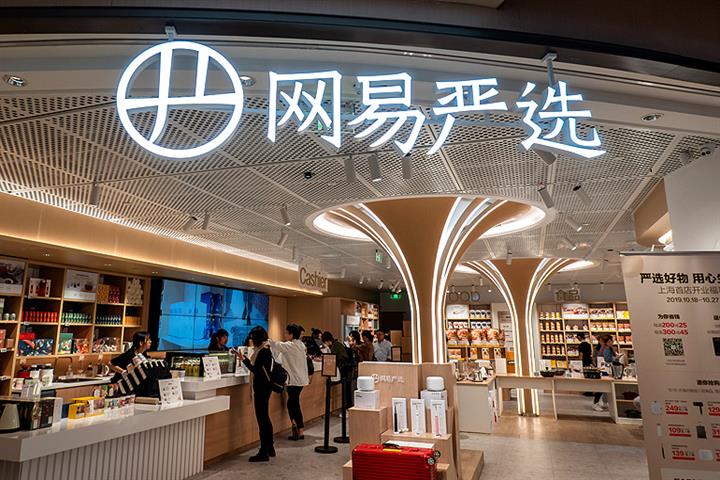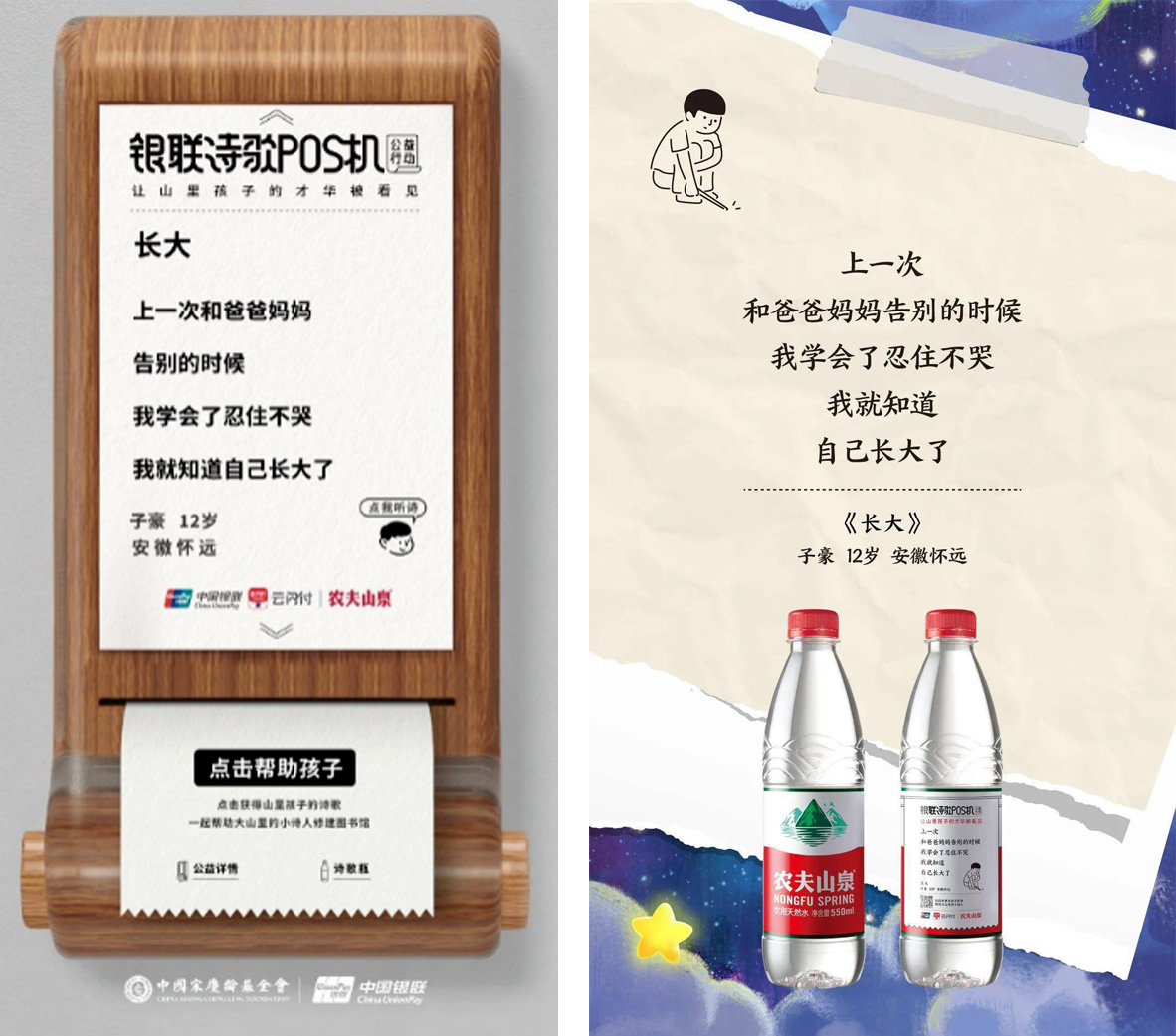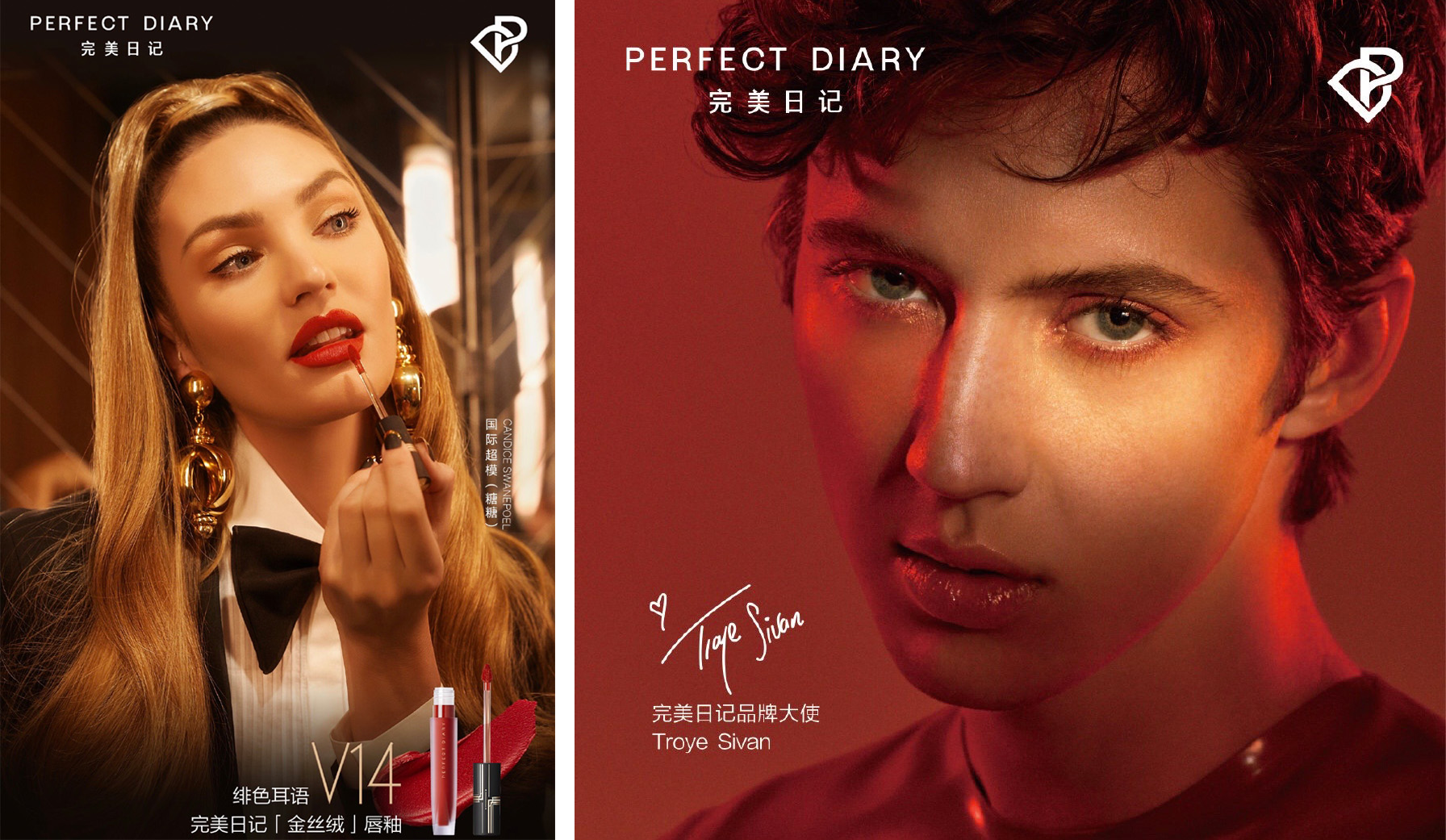
China’s Top 10 Marketing Campaigns in 2020
Though 2020 played out much differently than most of us anticipated, Chinese advertisers still managed to create some unique and noteworthy marketing campaigns.
Though 2020 played out much differently than most of us anticipated, Chinese advertisers still managed to create some unique and noteworthy marketing campaigns. In fact, many of the innovative marketing campaigns in 2020 centered around the pandemic. Different from Super Bowl commercials, many Chinese advertisers relied on social media platforms to engage with audiences.
Pandaily evaluated 2020’s advertising campaigns in terms of their creativity, call for action, impression level, and added value. Despite the large number of creative campaigns, we narrowed the list down to our top 10, with entries from these companies: Bilibili, Ding Talk, Genki Forest, W+K Shanghai, Neiwai, NetEase Yanxuan, Nongfu Spring, Perfect Diary, Pop Mart, and SAIC-GM-Wuling.
(The following firms are listed in alphabetical order.)
Bilibili (B站)

As one of China’s fastest-growing video streaming platforms, Bilibili released a motivational video, “The Rear Waves 后浪: Bilibili’s Speech for the Young Generation” on May 4, China’s Youth Day. The video featured 52-year-old actor He Bing paying tribute to the younger generation by giving an inspirational speech on how young people change the world.
“All those people who complain that each generation is worse than the last should look at you the way I’m looking at you — full of admiration,” said He. “Because of you, the world likes China more.”
This trending video especially resonated with people born in the late 80s and 90s in China as the older generation often says they are rebellious and spoiled due to China’s fast development. The video featured beautifully-shot footage of young people being “change-makers:” vloggers filming skydiving, winning e-sports championships, playing traditional Chinese instruments abroad, etc.
TAKEAWAY: Bilibili’s video campaign not only invited its target audience, Gen Z, to discuss how they themselves are capable of shaping the future of China, but also attracted potential consumers in all age groups with its refreshing idea. As a result, this video was ranked the No. 1 video on Bilibili with more than 20 million views within the first week. Bilibili saw its stock price rise by 11% in three days after this trending video was released.
Ding Talk (钉钉)

While many brands created sentimental ads during the COVID-19 crisis, Ding Talk provided us with some much-needed joy. During the pandemic in February, Alibaba’s Ding Talk, the Chinese version of Slack, created a new feature to provide live-streamed classes for many schools in China and more than 120 million students signed up to use it. However, DingTalk got bad reviews for being really good at doing its job. Many of these students bombarded app stores with one-star reviews for DingTalk, complaining that the app had ruined their extended holiday by allowing teachers to remotely monitor them.
In response to these one-star-reviews, Ding Talk released a funny video called “I am Begging for Mercy 钉钉本钉 在线求饶” on its official Bilibili account. The video contains viral memes and a trendy melody, featuring Ding Talk’s cartoon character, a cute grey bird crying for mercy. Ding Talk also posted a meme on its Weibo begging for good reviews.

“I am only five-years-old. You are all older than me. Please forgive me, my mates,” DingTalk’s cartoon character sang in the video. “I know you don’t want to go to class but please don’t hurt me. My dad Alibaba would be really disappointed if he knew about this,” Ding Talk further wrote on its meme.
TAKEAWAY: As an intelligent working platform backed by Alibaba Group, Ding Talk mainly targets enterprises, but this campaign successfully shifted its brand image from a stiff app to a funny friend. This is also a great crisis management example as the firm reversed its bad reviews and gained brand recognition.
Genki Forest (元气森林)

Founded in 2016, Genki Forest is one of the fastest-growing unicorns in China’s consumer market. Genki Forest’s health-centered drinks are popular among young consumers. The company also has beautifully-designed packaging with a bold logo that attracts people’s attention right away. The firm spent a lot on its marketing budget on Chinese social media platforms like TikTok, Weibo, and Red Book, as well as product placement in popular TV shows.
See also: https://pandaily.com/heytea-enters-healthy-soda-market-with-spin-off-brand/

Most prominently, it sponsored Hunan Satellite TV’s celebrity game show “The Irresistible” (元气满满的哥哥), which pits two generations of male stars against each other in various competitions. The Chinese name of Genki Forest, “vital forest,” aligns with the TV show’s name, “brothers full of vitality.” The TV show has helped the beverage brand build a healthy brand image as the older generation also appears to be energetic and often outperforms the younger group.
TAKEAWAY: Genki Forest captured Chinese millennial’s rising concern in health and fitness. The fat-free beverage with health-centered media exposure has increased its brand awareness in a short time. As a result, during the first half of 2020, the firm topped 800 million yuan in sales revenue.
Wieden+Kennedy Shanghai

Global advertising agency W+K decided to cheer up the country amid the pandemic. Located near a hospital in Shanghai, W+K Shanghai designed a “You Can’t Mask A Smile 罩样笑” campaign. Since many Chinese had to celebrate the New Year wearing masks, it was difficult to see people’s smiles. Therefore, W+K launched a series of photos of workers in different industries wearing masks with funny facial expressions.

This digital campaign started within the W+K Shanghai neighborhood, but later went viral on social media as many Chinese people joined the campaign and posted their photoshopped mask photos online. Even though the agency did not produce the physical product, many enjoyed this joyful digital campaign.

TAKEAWAY: This humorous and creative campaign quickly caused a stir on social media. Plus, creating a trendy hashtag and inviting ordinary people to post pictures for the campaign was a big bonus. Sometimes, campaigns with average people are more influential than celebrities as they capture the sincerity in the message more naturally.
NEIWAI (内外)

In the post #Metoo era, China has been silently fighting against traditional beauty norms. NEIWAI (translated to “inside and out”), a Chinese lingerie brand stands out in 2020 with its inspiring campaign “No Body is Nobody.”
“I was scared of gaining weight, so I quit carbs and put myself on a diet, which made me lose my period for a year,” said Naiping, one of the six women featured in the short documentary. This social media campaign was released ahead of International Women’s Day on WeChat and Weibo. All the women featured in the video had real stories to tell: “Big Boobs with No Brains,” “Mom,” “The Aged,” “Muffin Top,” and “Scars.” The female stereotypes were depicted in the film with strong visual storytelling.

With Victoria Secret’s plummet, the brand promotes body positivity by producing diverse sizes of products and wireless bras for consumers to choose from. “Ideally speaking, whether women have large or small breasts, whether they are slim or plump, regardless of their age groups, we want them to find their underwear at NEIWAI,” said the firm’s advertising campaign.

Born as an online lingerie brand in 2012, the firm quickly expanded into an online and offline retailer, with 2 million loyal customers around the world and is backed by well-known investors, including ZhenFund, Xiangfeng, and Qiming Venture Capital.
TAKEAWAY: 2020 was definitely the year for breaking gender stereotypes in China, especially with trendy female reality shows. Moreover, the brand knew “body positivity” has global influence, so it launched a new English website in May last year and is planning to expand its market in America.
NetEase Yanxuan (网易严选)

As an online shopping platform mainly for household supplies, NetEase’s sub-brand NetEase Yanxuan (translated to NetEase selection) chose to opt-out of 2020’s grand e-commerce shopping festival, Double 11, because they wanted to remind consumers to buy the right products instead of the most expensive ones. The brand also issued a video (in Chinese) online called “Consume, but not Consumerism” to remind people to shop rationally.
The campaign stimulated a lively discussion online with the hashtag #Yanxuan won’t participate in Double 11 war gaining 41.63 million views on Weibo.
TAKEAWAY: Similar to outdoor gear store REI’s famous #optoutside campaign on Black Friday, Yanxuan has a similar message to tell Chinese consumers: shop rationally. However, several users commented that the reason behind this anti-consumerism campaign was that Yanxuan knew it couldn’t compete with Tmall and JD during China’s major shopping holidays. Lesson learned: Be mindful that the public can easily spot your campaign’s real motive!
Nongfu Spring (农夫山泉)

In July 2020, 15 special poetry POS machines appeared in Shanghai, which would print out receipts with poems on them if people donated 1 yuan. Meanwhile, 100 million bottled water with poems on their packages were circulating wildly in China. This was a cross-branding collaboration between bottled water and beverage company Nongfu Spring and leading financial service corporation China UnionPay.

All the poems were written by left-behind children in China, also called "stay-at-home children" — children who remain in rural regions of China while their parents leave to work in urban areas. These beautiful poems also appeared on Nongfu bottled water’s packages as a QR code. By scanning the QR Code, users could listen to children reading the poem. More than 30 million people tuned in to a promotional livestream of the initiative on short-video platform Kuaishou in one day.
On Sept. 8, Nongfu arrived on the Hong Kong stock exchange market with a big surprise. Its share price increased 60% in the first three days of trading, raising more than $1 billion and turning founder Zhong Shanshan into China’s third-richest man.

TAKEAWAY: In addition to creating brand recognition, this campaign also raised people’s awareness of left-behind children. Beyond the elegant packaging, Nongfu’s cross-branding campaign was promoted across multiple platforms, both online and offline. If you are aiming to create emotional resonance, you should always put corporate responsibility first when creating your advertising campaign.
Perfect Diary (完美日记)

On May 12, China’s leading domestic cosmetic brand Perfect Diary launched a unique campaign on Weibo. To express gratitude to hard-working medical workers, the makeup brand decided to use its products to give nine frontline nurses a makeover on International Nurses Day. The campaign juxtaposed images of the nurses just finishing shifts with photos of them wearing Perfect Diary’s makeup alongside their personal stories.
Established in 2016, Perfect Diary is one of the fastest-growing cosmetic brands in the country. Perfect Diary’s parent company Yasten Holding, went public in November on the NYSE and became the first Chinese beauty group listed on the U.S. stock market. The brand’s shares surged 75% on the first day of its listing.

TAKEAWAY: Perfect Diary has been adopting D2C (direct to consumer) marketing strategy for a long time. In this case, highlighting the brand’s corporate responsibility also strengthened its word-of-mouth communication strategy.
Pop Mart (泡泡玛特)

China’s “blind box” craze had led to Chinese toy company Pop Mart’s worldwide success. Millennials and Generation Z are the brand’s target audience due to its “blind box” feature. The toys are sold in “blind boxes”, where consumers buy a package with no labeling, making their purchase a surprise.
Teens have been fond of the random-draw toy phenomenon since 1999, when a dry noodle snack included collectible cards of heroes and were sold near schools. Children rushed to buy them. Just like the Pokémon card craze of the late ’90s, toys found in blind boxes are on the rise in China.
In an August 2019 report, Alibaba’s online store Tmall said that over 200,000 consumers had spent more than 20,000 yuan on blind box toys throughout the preceding 12 months. In December 2020, Pop Mart successfully launched its IPO in Hong Kong, with shares skyrocketing by 100.26% in value.

TAKEAWAY: “Random-draw toy phenomenon” has a long history in China. Pop Mart captured young audience’s desire for the unknown and found a unique way to sell its toys.
SAIC-GM-Wuling Automobile(五菱汽车)

One of China’s leading automobile firms SGMW made a bold move on Feb. 6, 2020, announcing its plan to shift its production line to mask manufacturing. Over the next three days, the group underwent steps to transform its auto research and development (R&D) base into a dust-free plant, installing related equipment, and obtaining a certificate to produce protective goods. It only took 76 hours for the factory to transform its production line into a mask-making machine and distribute its first batch of masks.

"We produce what the people need," wrote SGMW on Weibo. Besides the masks, SGMW also switched to develop technology products, such as a fully-automatic mask machine, intelligent mobile temperature measuring vehicles, and unmanned disinfection vehicles to aid pandemic control, according to the company.

The firm delivered more than 12 million masks for free to local epidemic prevention and control agencies, several universities across the country, and frontline workers.

Known for its iconic Wuling Sunshine minivan featured on the cover of Forbes Magazine in 2010, SGMW sold more than 1.6 million automobiles in 2019.
TAKEAWAY: For a historical brand like SGMW, the firm has embraced changes and earned significant brand recognition. By showcasing its strengths in mask production amid the pandemic, the brand showed the world that it really can do anything.





